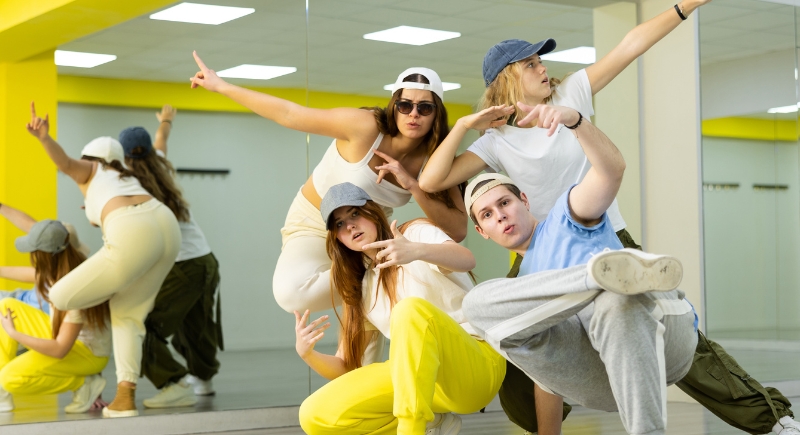Talk Like a 2025 Teen—15 Slang Terms Gen Z Uses Daily
Gen Z slang emerges from niche online spaces or catches on through influencers, gaming streams, or group chats. These words rarely stay in one lane. They spread, stretch, mutate, and occasionally vanish without warning. But today, these are the ones showing up everywhere.
You’ll see them on TikTok, in hallways, and across texts. They are often used with total seriousness by people still figuring out where to apply for college.
Delulu

Credit: pexels
Nobody actually thinks the scenario will happen, and that’s part of the fun. “Delulu” gives people a label for those mental detours—imagining a random stranger is in love with you, assuming your crush picked their playlist just for you. The term took off in K-pop fan circles, but it works anywhere.
Slay

Credit: Getty Images
You may hear this when someone handles a moment without slipping. The outfit landed, the delivery hit, the timing worked. It shows up sparingly and always as a compliment. “Slay” traces back to Black and queer ballroom culture, where it celebrated total command of the room.
For the Plot

Credit: Canva
Influencer Serena Kerrigan helped push this phrase into daily use. It’s what people use when they act on impulse with no clear plan. You don’t need to justify why you went out on a weeknight or sent that text. Saying it was “for the plot” turns the moment into something you own.
Aura

Credit: Canva
Someone with an aura doesn’t usually talk the most. They just walk into a room and shift the mood without needing to explain themselves because their presence does the talking. Online, people give out fake “aura points” for small wins: making a solid playlist, staying calm under pressure, or helping someone without turning it into a moment.
No Cap

Credit: Canva
Rappers popularized the term years ago, but its roots run through Black English. Gen Z leverages it to signal honesty in a conversation that might not sound believable. State something bold, then add “no cap” to underline that it’s real. It cuts through doubt without adding drama.
Rent-Free

Credit: pexels
That weird interaction you replay in your head? That meme that won’t leave your brain? That’s living rent-free. Nobody invited it in, and it’s not leaving anytime soon. The phrase works because it makes your thoughts sound like roommates you can’t evict.
Very Demure, Very Mindful

Credit: pexels
The original video that popularized the phrase was a makeup tutorial that described a “work-appropriate” look. Then, people started borrowing the phrase for other things. Suddenly, it wasn’t just eyeliner but your friend’s outfit at dinner, someone skipping the drama in a group chat, or a calendar full of balanced, efficient plans.
Rizz

Credit: pexels
According to teens, no one needs to be attractive to have rizz. It comes down to timing, tone, and knowing when to hold back. Kai Cenat brought wider attention to the term through his livestreams and videos, where his confidence made an impression. Once it caught on, teens started using it to describe anyone who could flirt without sounding forced.
Ick

Credit: Getty Images
When someone describes a date gone weird or a crush that fizzled for no big reason, this is one of the words you’ll hear. Maybe he clapped when the plane landed or referred to his pet as a “fur baby.” Something small shifts the vibe, and suddenly the attraction disappears. That’s the ick. It’s quick, specific, and usually irreversible.
Flex

Credit: iStockphoto
A flex was once a show-off move, but currently, it’s more about tone. Someone posts a vacation photo with no caption—that’s a flex. Someone casually mentions they taught themselves a new language over the summer—that’s one too. The key is subtlety, because the second you start explaining, it stops being a flex.
Mother

Credit: Instagram
This word found its way from ballroom culture to mainstream slang. People started using “mother” for celebrities who moved with influence and control without demanding attention. Mariah Carey, Beyoncé, and Lana Del Rey all got the title. In its original context, a house mother led with care and strength. That meaning still shapes how the term is used these days.
Shook

Credit: Getty Images
This isn’t the kind of surprise you shake off. Someone does something that pulls the floor out from under you. You sit with it for a second, eyes wide, no words. That’s what “shook” captures. It doesn’t mean fear or panic, but the freeze that comes with too much input all at once.
Lit

Credit: Getty Images
Nothing drags a night down like dead energy, and “lit” is how teens describe the ones that avoid that completely. If the vibe held, the crowd stayed engaged, and nobody bailed early, people would bring up this word. It once described being drunk or high at wild parties, but now it works for any gathering that clicks.
Tea

Credit: Getty Images
The word sounds sweet, but people use it when things get messy. Someone cheated, ghosted, or sent screenshots they shouldn’t have—now there’s tea. The phrase came up through drag culture and YouTube, where it described gossip. It stuck because “spilling tea” sounds lighter than “spreading rumors,” but it usually means the same thing.
Bet

Credit: Canva
One word that gets used for everything is “bet”. It means “yes,” “cool,” “I got it,” and “say less,” depending on how you phrase it. You suggest a time to meet—someone replies “bet,” and it’s settled. You explain a plan—they respond with “bet,” and you know they’re on board. It travels well in text, especially when no one wants to type full sentences.